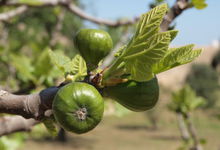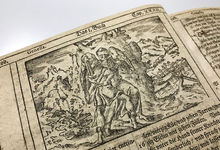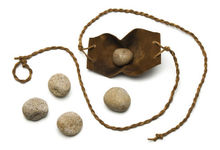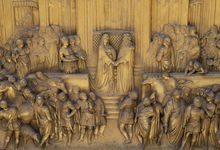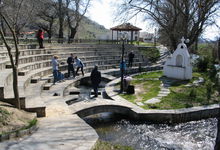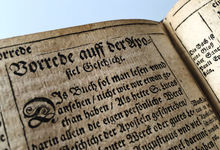Beyond Eden: love liberates the will
A fratricide must not necessarily involve bloodshed: the thing between Cain and Abel is something that we see every day. And it poses a very personal question to every reader.

Cain and Abel’s story is not only a chronological extension of Adam and Eve’s. In fact, the story of these two men must be understood as man’s fall 2.0: while the issue for the parents had been the relationship between man and God, for the two brothers it was the relationship man to man.
The narrative in chapters 3 and 4 of Genesis shows structural parallels, parts of a unified whole: God’s question to Adam “Where are you?” is contrasted with “Where is Abel your brother?” And Adam and Eve’s expulsion from the Garden of Eden corresponds with Cain’s banishment to the land of Nod, an unstable and unpredictable life.
The power of distinction
Already Eve made a distinction: her firstborn she hails as an achievement by giving him a name whose Hebrew root means something between “acquire” and “create”, and which sounds like Cain. Her second son she refers to as “vapour” or “breath”—having no substance, being close to nothing—which is what the Hebrew root of the name Abel means.
And then God made a distinction: the two men, one a farmer and the other a shepherd, each bring God an offering to worship and thank Him. But God acknowledges only one of them? How does He do that? The Bible does not specify. Nor does it say how this becomes visible.
But Cain’s reaction is vividly described in the Hebrew text: his nose was burning. In plain language, he was furious and boiling with rage. God addresses him on account of his heated anger and fallen countenance. But Cain does not hear anything any more. His bloody deed cries out to heaven. He lies to God and mocks the victim: must he now guard his brother, the keeper?
Cain is not an exception
Why does he or she get the promotion, the better grades, the partner, or more attention? I am just as hard-working, loveable, and in need of help. Who has not already felt neglected, discriminated, and unfairly treated at times?
Who would not react to something like this with misunderstanding, hurt, envy, jealousy, and a desire for revenge? Words too can kill—in particular trust and relationships. And sometimes an email is all it takes to destroy an entire existence.
This puts the focus on verse 7 of the story. Here God warns Cain—and each of his fellow-sufferers throughout all ages: “Careful! Your feelings and you are at a crossroads. Choose that which serves the good, otherwise it will end badly.”
The power of decision
And what is this good? Cain only had his conscience as a standard to go by. Later the people had the Ten Commandments—not in the sense of a restriction, but as a support. And the teachings of Jesus make it even easier: “Love God above everything”, and “your neighbour as yourself”, the double commandment of love being the response to the double fall into sin.
How do you deal with insults, discrimination, and injustice? This is the question that the story of Cain poses to the reader. How do you respond to your emotional turmoil? Always measure your intentions by whether your actions will bring you closer to God and the people around you. God has given you a free will. You always have the power of choice. Use this power to do good and what is right.
Photo: STUDIO GRAND WEB - stock.adobe.com
Article info
Author:
Date:
Keywords:
Andreas Rother
18.03.2019
Bible Study
, Divine service,
Doctrinal instruction













